Instructors
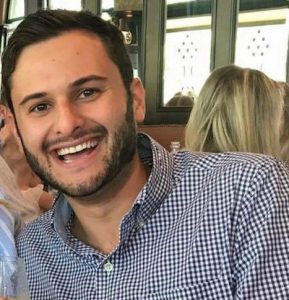 Corey Sugerik is a second-year Master of Environmental Management candidate at the Nicholas School of the Environment, concentrating in environmental economics and policy. At Duke, he co-leads the U.N. Climate Change Negotiations Practicum and serves as a Science and Policy Editor of Duke Law School’s environmental law journal. After graduating from North Carolina State University in 2014 with a BS in Environmental Technology and Management, he continued to work for the Extension Forestry Department at NC State, then served in the Peace Corps in Malawi from 2015 to 2018, focusing on community-based forestry management, environmental education, and food security. He attended COP24 in Katowice, Poland and worked with the Environmental Defense Fund to track various sessions related to transparency and Article 6 of the Paris Agreement (carbon markets). This past summer, Corey worked as a policy advocacy intern for the North Carolina Chapter of the Sierra Club in Raleigh, tracking and analyzing state environmental legislation. He wants to pursue a career in climate change policy, focusing on the interface of energy, transportation, agriculture, and environmental justice at the sub-national level.
Corey Sugerik is a second-year Master of Environmental Management candidate at the Nicholas School of the Environment, concentrating in environmental economics and policy. At Duke, he co-leads the U.N. Climate Change Negotiations Practicum and serves as a Science and Policy Editor of Duke Law School’s environmental law journal. After graduating from North Carolina State University in 2014 with a BS in Environmental Technology and Management, he continued to work for the Extension Forestry Department at NC State, then served in the Peace Corps in Malawi from 2015 to 2018, focusing on community-based forestry management, environmental education, and food security. He attended COP24 in Katowice, Poland and worked with the Environmental Defense Fund to track various sessions related to transparency and Article 6 of the Paris Agreement (carbon markets). This past summer, Corey worked as a policy advocacy intern for the North Carolina Chapter of the Sierra Club in Raleigh, tracking and analyzing state environmental legislation. He wants to pursue a career in climate change policy, focusing on the interface of energy, transportation, agriculture, and environmental justice at the sub-national level.
 Cai May Tan is a second-year Master of Environmental Management candidate at the Nicholas School of the Environment. She is concentrating in environmental economics and policy, with a primary interest in climate economics. Currently, she co-leads the U.N. Climate Change Negotiations Practicum and is a Science and Policy Editor of the Duke Law Environmental Law Journal. She has a long-standing interest in policy solutions, and has interned at organizations supporting climate action in her home country, Malaysia. Cai May attended COP24 as a delegate of the Malaysian Youth Delegation, a youth-based NGO promoting awareness and accountability of domestic climate policies. In Katowice, she tracked negotiations on adaptation and climate finance. This past summer, Cai May worked in Geneva, Switzerland, as a research consultant with the International Institute for Sustainable Development in the Public Procurement and Infrastructure Finance team. Her recent experience has forged new interests in private finance solutions to advance sustainable climate action. She received her B.A. in Liberal Arts with a concentration in Environmental Studies from Soka University of America in May 2018. Cai May aims to pursue a career in environmental consulting, supporting efforts in implementing ambitious climate solutions from the ground-up.
Cai May Tan is a second-year Master of Environmental Management candidate at the Nicholas School of the Environment. She is concentrating in environmental economics and policy, with a primary interest in climate economics. Currently, she co-leads the U.N. Climate Change Negotiations Practicum and is a Science and Policy Editor of the Duke Law Environmental Law Journal. She has a long-standing interest in policy solutions, and has interned at organizations supporting climate action in her home country, Malaysia. Cai May attended COP24 as a delegate of the Malaysian Youth Delegation, a youth-based NGO promoting awareness and accountability of domestic climate policies. In Katowice, she tracked negotiations on adaptation and climate finance. This past summer, Cai May worked in Geneva, Switzerland, as a research consultant with the International Institute for Sustainable Development in the Public Procurement and Infrastructure Finance team. Her recent experience has forged new interests in private finance solutions to advance sustainable climate action. She received her B.A. in Liberal Arts with a concentration in Environmental Studies from Soka University of America in May 2018. Cai May aims to pursue a career in environmental consulting, supporting efforts in implementing ambitious climate solutions from the ground-up.
Student Participants
 Zukhruf Amjad is a Fulbright Scholar at Duke and a first year Master of Environmental Management candidate at the Nicholas School of the Environment. At Nicholas, she is part of the Energy and Environment concentration. Hailing from Pakistan, Zukhruf holds a Bachelor of Science in Electrical Engineering from Pakistan Institute of Engineering and Applied Sciences; the country’s top ranked engineering institute. Before coming to Duke, Zukhruf worked at Proctor and Gamble as a Process Engineer. At P&G, Zukhruf led multiple energy efficiency, resource efficiency and sustainability projects. She hopes to gain a hands-on experience in international climate change negotiations and international climate policy dynamics at the UN Climate Change Negotiations Practicum. Having interests in climate change adaptation and financing, she aims to use these experiences and skills to contribute to her country’s climate policy structure.
Zukhruf Amjad is a Fulbright Scholar at Duke and a first year Master of Environmental Management candidate at the Nicholas School of the Environment. At Nicholas, she is part of the Energy and Environment concentration. Hailing from Pakistan, Zukhruf holds a Bachelor of Science in Electrical Engineering from Pakistan Institute of Engineering and Applied Sciences; the country’s top ranked engineering institute. Before coming to Duke, Zukhruf worked at Proctor and Gamble as a Process Engineer. At P&G, Zukhruf led multiple energy efficiency, resource efficiency and sustainability projects. She hopes to gain a hands-on experience in international climate change negotiations and international climate policy dynamics at the UN Climate Change Negotiations Practicum. Having interests in climate change adaptation and financing, she aims to use these experiences and skills to contribute to her country’s climate policy structure.
 Alexandra Bennett is in her first year of a dual degree program as a Master of Environmental Management candidate at the Nicholas School of the Environment and Master of Business Administration candidate at the Fuqua School of Business. This summer Alexandra interned with the Conservation Trust for North Carolina (CTNC) to conduct a carbon emissions inventory and develop a plan for CTNC to reach their carbon neutrality goals. Prior to Duke, she served in the Philippines as a US Peace Corps Volunteer focused on coastal resource management and community-based environmental management. Alexandra is interested in sustainable business operations and corporate social responsibility.
Alexandra Bennett is in her first year of a dual degree program as a Master of Environmental Management candidate at the Nicholas School of the Environment and Master of Business Administration candidate at the Fuqua School of Business. This summer Alexandra interned with the Conservation Trust for North Carolina (CTNC) to conduct a carbon emissions inventory and develop a plan for CTNC to reach their carbon neutrality goals. Prior to Duke, she served in the Philippines as a US Peace Corps Volunteer focused on coastal resource management and community-based environmental management. Alexandra is interested in sustainable business operations and corporate social responsibility.
 Pradnya Bhandari is a second year Masters of Environmental Management student with a concentration in Business and Environment. With a Bachelors of Science in Environmental Science and Technology from the University of Maryland, she has spent the last five years working at the U.S. Environmental Protection Agency, working in science communications and program operations. She has been a passionate environmentalist from a young age, and is now looking to engage the private sector to tackle global climate issues. Through the UN Climate Change Practicum she hopes to work closely with the signatories of the Fashion Industry Charter for Climate Action.
Pradnya Bhandari is a second year Masters of Environmental Management student with a concentration in Business and Environment. With a Bachelors of Science in Environmental Science and Technology from the University of Maryland, she has spent the last five years working at the U.S. Environmental Protection Agency, working in science communications and program operations. She has been a passionate environmentalist from a young age, and is now looking to engage the private sector to tackle global climate issues. Through the UN Climate Change Practicum she hopes to work closely with the signatories of the Fashion Industry Charter for Climate Action.
 Grace Chan is a first-year Master of Environmental Management candidate at the Nicholas School of the Environment, with a concentration in environmental economics and policy. Through the UN Climate Change Negotiations Practicum, Grace hopes to gain in-depth knowledge of international climate change policies and politics. After graduating from University of California, Davis with a degree in Environmental Science and Management in 2017, Grace worked with a small environmental consulting firm in hazardous materials due diligence. After completing her master’s program, Grace hopes to pursue a career in climate change policy, focusing on mitigation policy efforts and implementation.
Grace Chan is a first-year Master of Environmental Management candidate at the Nicholas School of the Environment, with a concentration in environmental economics and policy. Through the UN Climate Change Negotiations Practicum, Grace hopes to gain in-depth knowledge of international climate change policies and politics. After graduating from University of California, Davis with a degree in Environmental Science and Management in 2017, Grace worked with a small environmental consulting firm in hazardous materials due diligence. After completing her master’s program, Grace hopes to pursue a career in climate change policy, focusing on mitigation policy efforts and implementation.
 Thandolwethu Dlamini is a senior at Duke University majoring in Mechanical Engineering with a minor in German. He hails from the Kingdom of Eswatini where he grew up and attended school before coming to Duke for his undergraduate studies. Thandolwethu believes in building a more equitable world through the provision of basic needs such as clean water, energy, sanitation, and education to communities in developing nations like his own. This belief has influenced most of his academic, entrepreneurial, research and career decisions such as delaying his graduation to spend a year working in off-grid rural electrification. First, Thandolwethu was in Lesotho for 7 months working for OnePower then moved back home in Eswatini in April 2019 to work with the Eswatini Electricity Company. Furthermore, he is a Pratt Fellow researching with the Duke Center for WASH-AID in the Bill and Melinda Gates Foundation-funded Reinvent The Toilet (RTT) challenge. Thandolwethu intends to further his education through acquiring a Masters’s Degree focusing on the intersection of Energy, Policy, and Business.
Thandolwethu Dlamini is a senior at Duke University majoring in Mechanical Engineering with a minor in German. He hails from the Kingdom of Eswatini where he grew up and attended school before coming to Duke for his undergraduate studies. Thandolwethu believes in building a more equitable world through the provision of basic needs such as clean water, energy, sanitation, and education to communities in developing nations like his own. This belief has influenced most of his academic, entrepreneurial, research and career decisions such as delaying his graduation to spend a year working in off-grid rural electrification. First, Thandolwethu was in Lesotho for 7 months working for OnePower then moved back home in Eswatini in April 2019 to work with the Eswatini Electricity Company. Furthermore, he is a Pratt Fellow researching with the Duke Center for WASH-AID in the Bill and Melinda Gates Foundation-funded Reinvent The Toilet (RTT) challenge. Thandolwethu intends to further his education through acquiring a Masters’s Degree focusing on the intersection of Energy, Policy, and Business.
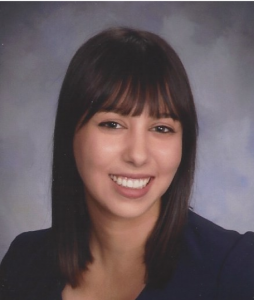
Emma Hughes is a first-year Master of Environmental Management candidate at the Nicholas School of the Environment, concentrating on environmental economics and policy. Emma received her B.A. in Economics and minors in Statistics and Environmental Studies from Wake Forest University. While at Wake Forest, she worked with the Office of Sustainability developing and leading peer education programs promoting environmental awareness and sustainable behaviors. More recently this summer, Emma worked with the National Parks Conservation Association as a Government Affairs Policy Fellow. There she conducted outreach with congressional environmental legislative staff, collaborated on a campaign for legislation, and conducted preliminary research on climate resilience and cultural resources in National Parks.
 Yared Lemma Hurisa is a second-year Master of International Development Policy candidate at Sanford School of Public Policy. Yared is also a Rotary Peace Fellow funded by Duke-UNC Peace Center. As a Rotary Peace Fellow, Yared’s study concentrates in peace-building and conflict resolution. This summer, Yared completed a data science internship in Kemetrica LLC in Denver Co. in a project funded by DARPA. During this time, Yared involved in modeling the interaction of conflict, climate change and migration at global level which he hopes to take it to masters project level. Prior to Duke, Yared has over 8 years of experience in USAID funded projects in Ethiopia in areas of research, knowledge management and monitoring and evaluation. Through the UN Climate Change negotiations Practicum, Yared hopes to expand his policy analyses expertise in international climate change arena.
Yared Lemma Hurisa is a second-year Master of International Development Policy candidate at Sanford School of Public Policy. Yared is also a Rotary Peace Fellow funded by Duke-UNC Peace Center. As a Rotary Peace Fellow, Yared’s study concentrates in peace-building and conflict resolution. This summer, Yared completed a data science internship in Kemetrica LLC in Denver Co. in a project funded by DARPA. During this time, Yared involved in modeling the interaction of conflict, climate change and migration at global level which he hopes to take it to masters project level. Prior to Duke, Yared has over 8 years of experience in USAID funded projects in Ethiopia in areas of research, knowledge management and monitoring and evaluation. Through the UN Climate Change negotiations Practicum, Yared hopes to expand his policy analyses expertise in international climate change arena.
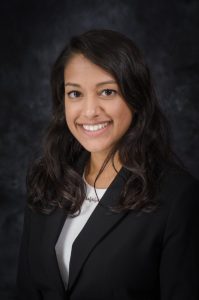 Melinda Melvin is a third year law candidate for a joint Juris Doctor and Master of Laws in International & Comparative Law. She earned her Bachelor of Science from Queen’s University (Kingston), majoring in Environmental Science with a minor in Political Studies. She has experience in community sustainability planning, developing voluntary emissions reduction plans and sustainability programs for small businesses, and EU ETS compliance. She serves as an Articles Editor for the Duke Journal of Comparative and International Law and as Managing Editor for the Duke Environmental Law & Policy Forum, which will publish an article she wrote on China’s emissions trading system this fall. She intends to pursue a career in corporate and environmental law, hoping to work in climate finance and policy.
Melinda Melvin is a third year law candidate for a joint Juris Doctor and Master of Laws in International & Comparative Law. She earned her Bachelor of Science from Queen’s University (Kingston), majoring in Environmental Science with a minor in Political Studies. She has experience in community sustainability planning, developing voluntary emissions reduction plans and sustainability programs for small businesses, and EU ETS compliance. She serves as an Articles Editor for the Duke Journal of Comparative and International Law and as Managing Editor for the Duke Environmental Law & Policy Forum, which will publish an article she wrote on China’s emissions trading system this fall. She intends to pursue a career in corporate and environmental law, hoping to work in climate finance and policy.
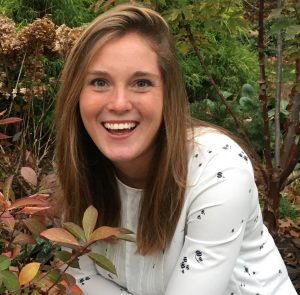 Marie McNamara is a first year Master of Environmental Management candidate at the Nicholas School of the Environment, concentrating in Water Resources Management with an interested in environmental justice and policy. She received her B.S in Civil Engineering and a Minor in Environmental Studies from Santa Clara University. Upon graduating in 2016 Marie worked for municipal engineering consulting firm, where she worked on multimodal transit projects, and storm water capture systems. From there she transitioned to a role as an energy analyst modeling cost, and carbon reductions. Marie aspires to be a professional working to incorporate climate adaptation in future design standards, focusing on how infrastructure and policy entities can be used to spur resilience.
Marie McNamara is a first year Master of Environmental Management candidate at the Nicholas School of the Environment, concentrating in Water Resources Management with an interested in environmental justice and policy. She received her B.S in Civil Engineering and a Minor in Environmental Studies from Santa Clara University. Upon graduating in 2016 Marie worked for municipal engineering consulting firm, where she worked on multimodal transit projects, and storm water capture systems. From there she transitioned to a role as an energy analyst modeling cost, and carbon reductions. Marie aspires to be a professional working to incorporate climate adaptation in future design standards, focusing on how infrastructure and policy entities can be used to spur resilience.

Suzanne Mullinsis a second-year Master of Environmental Management candidate at the Nicholas School of the Environment. Her studies concentrate on environmental economics and policy, with specific focuses on climate change mitigation, adaptation, and environmental justice. She currently serves as a Science and Policy Editor for Duke’s Environmental Law Journal. This past summer, Suzanne worked at the NC League of Conservation Voters where she crafted their legislative scorecard and gained an inside look at environmental politics and legislative processes. Prior to Duke, she studied at Wake Forest University and engaged in work and research with the U.S. Environmental Protection Agency, The Nature Conservancy NC, and the WFU Office of Sustainability.
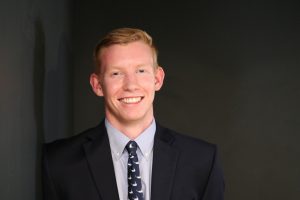 Riley Pfaff is a senior majoring in Public Policy Studies with minors in Economics and Environmental Science and Policy. Last fall, Riley spent a semester in Copenhagen, where he studied sustainable development in Northern Europe and renewable energy systems, as well as international relations. This past summer Riley worked with the Policy and Lobbying team at the League of Conservation Voters in Washington, D.C. At LCV, he was most involved in working with the organization’s Clean Energy for All campaign, which seeks to transition the country to 100 percent clean energy by 2050. After graduation, Riley plans on working with renewable energy policy before eventually returning to school to pursue a career in environmental law.
Riley Pfaff is a senior majoring in Public Policy Studies with minors in Economics and Environmental Science and Policy. Last fall, Riley spent a semester in Copenhagen, where he studied sustainable development in Northern Europe and renewable energy systems, as well as international relations. This past summer Riley worked with the Policy and Lobbying team at the League of Conservation Voters in Washington, D.C. At LCV, he was most involved in working with the organization’s Clean Energy for All campaign, which seeks to transition the country to 100 percent clean energy by 2050. After graduation, Riley plans on working with renewable energy policy before eventually returning to school to pursue a career in environmental law.
 Forrest Robinette is a second-year Master of Public Policy candidate at the Sanford School of Public Policy. Forrest earned his B.A. in English literature from Trinity College in 2016. After graduating, he spent two years teaching high school English and mathematics in Louisiana as a Teach For America corps member. Since coming to Duke, Forrest has pursued his interests in environmental and global policy. This past summer, he interned at the United Nations Environment Programme in Geneva, supporting economic policy advising for developing countries. Forrest aspires to a career in global policy, focusing on international efforts to mitigate climate change.
Forrest Robinette is a second-year Master of Public Policy candidate at the Sanford School of Public Policy. Forrest earned his B.A. in English literature from Trinity College in 2016. After graduating, he spent two years teaching high school English and mathematics in Louisiana as a Teach For America corps member. Since coming to Duke, Forrest has pursued his interests in environmental and global policy. This past summer, he interned at the United Nations Environment Programme in Geneva, supporting economic policy advising for developing countries. Forrest aspires to a career in global policy, focusing on international efforts to mitigate climate change.
Faculty Sponsors
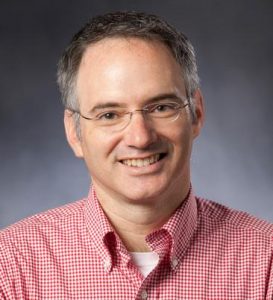 Billy Pizer holds joint appointments as professor in the Sanford School of Public Policy and as a faculty fellow in the Nicholas Institute for Environmental Policy Solutions. His current research examines how public policies to promote clean energy can effectively leverage private sector investments, how environmental regulation and climate policy can affect production costs and competitiveness, and how the design of market-based environmental policies can be improved. From 2008 until 2011, he was Deputy Assistant Secretary for Environment and Energy at the U.S. Department of the Treasury, overseeing Treasury’s role in the domestic and international environment and energy agenda of the United States. Prior to that, he was a researcher at Resources for the Future for more than a decade. He has written more than two dozen peer-reviewed publications, books, and articles, and holds a Ph.D. and Master’s degree in economics from Harvard University and Bachelor’s degree in physics from the University of North Carolina at Chapel Hill.
Billy Pizer holds joint appointments as professor in the Sanford School of Public Policy and as a faculty fellow in the Nicholas Institute for Environmental Policy Solutions. His current research examines how public policies to promote clean energy can effectively leverage private sector investments, how environmental regulation and climate policy can affect production costs and competitiveness, and how the design of market-based environmental policies can be improved. From 2008 until 2011, he was Deputy Assistant Secretary for Environment and Energy at the U.S. Department of the Treasury, overseeing Treasury’s role in the domestic and international environment and energy agenda of the United States. Prior to that, he was a researcher at Resources for the Future for more than a decade. He has written more than two dozen peer-reviewed publications, books, and articles, and holds a Ph.D. and Master’s degree in economics from Harvard University and Bachelor’s degree in physics from the University of North Carolina at Chapel Hill.
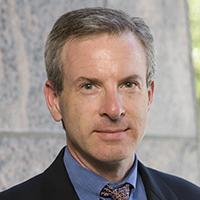 Jonathan B. Wiener is the William R. and Thomas L. Perkins Professor of Law at Duke Law School, Professor of Environmental Policy at the Nicholas School of the Environment, and Professor of Public Policy at the Sanford School of Public Policy, at Duke University. Since 2015 he is the Co-Director of the Rethinking Regulation program at Duke. From 2000-05 he was the founding Faculty Director of the Duke Center for Environmental Solutions, now expanded into the Nicholas Institute for Environmental Policy Solutions, of which he served as chair of the faculty advisory committee from 2007-10.
Jonathan B. Wiener is the William R. and Thomas L. Perkins Professor of Law at Duke Law School, Professor of Environmental Policy at the Nicholas School of the Environment, and Professor of Public Policy at the Sanford School of Public Policy, at Duke University. Since 2015 he is the Co-Director of the Rethinking Regulation program at Duke. From 2000-05 he was the founding Faculty Director of the Duke Center for Environmental Solutions, now expanded into the Nicholas Institute for Environmental Policy Solutions, of which he served as chair of the faculty advisory committee from 2007-10.
Since 2002 he has been a University Fellow of Resources for the Future (RFF), the environmental economics think tank. He is a member of the Scientific and Technical Council of the International Risk Governance Council (IRGC), and of the Chaire Economie du Climat (CEC). He was a chapter lead author for the Intergovernmental Panel on Climate Change (IPCC), 5th Assessment Report, Working Group III, Chapter 13, “International Cooperation: Agreements and Institutions” (2014). In 2015 he was a member of the Special Policy Study team on “Environmental Risk Management” for the China Council for International Cooperation on Environment and Development (CCICED). In 2014-16 he was a member of the World Economic Forum’s Global Agenda Council on Climate Change.
Before coming to Duke, he worked on U.S. and international environmental policy at the White House Council of Economic Advisers, at the White House Office of Science and Technology Policy, and at the US Department of Justice, serving in both the first Bush and Clinton administrations. He helped negotiate the Framework Convention on Climate Change, and attended the Rio Earth Summit in 1992. In 1993 he helped draft Executive Order 12866 on Regulatory Review. He received his A.B. in economics (1984) and J.D. (1987) from Harvard University.